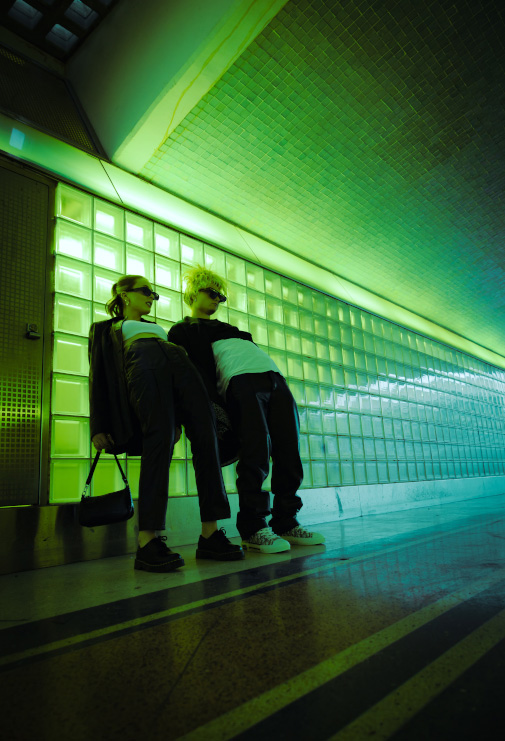- Vol. 09
- Chapter 08

Never Having to Say You’re Sorry
Ekphrastic poetry is addictive—you make up stories about other people and that’s so much fun. Like that painting with all the deflated clocks—simple—that was the time grandma left the oven on all night, door open, windows open when she went out to chase porcupines in the woods, so everything inside the house melted, outside, too, where grandpa was repairing clocks.
Or that painting with the kaleidoscopic pools of color all over the sky and the figure on the bridge with hands to his face, head like a lightbulb, mouth like a keyhole—that’s the time my older brother tortured a stray cat, cut off its tail and the blood flew everywhere, filled the lavender orange sky, and he couldn’t stop screaming out of regret for what he’d done.
Or that painting with the lady with long black hair parted in the middle, wearing the black dress, arms folded, who’s sort of smiling, sort of not—that’s the time mother had all those tests and after she heard the results, she just sat there for hours not moving not saying a word to anyone, even as the room fell into black shadow and a murder of crows alit on the roof.
See how easy it is to be ekphrastic? It means you never have to tell your own story—like the time you and your bestie were in the tube station fooling around, acting like aliens and doing weird backward poses in the green neon light, and it was all funny until it wasn’t, the train coming down the tracks and the accident, and you didn’t mean to, and it isn’t true she was dating the kid you liked, but you’re ekphrastic and that means never having to own your story, never having to atone for it, never having to say you’re sorry.
